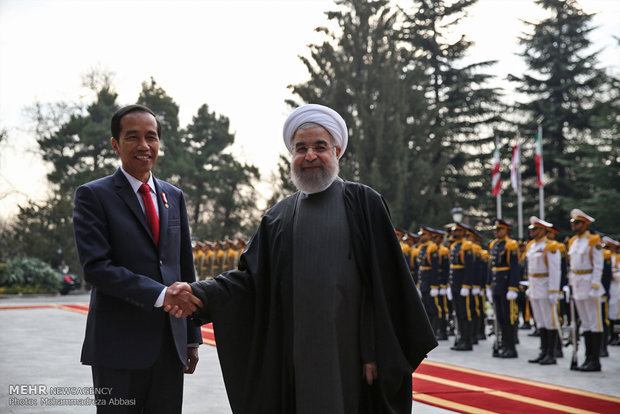Rouhani talks to Widodo, says U.S. sanctions go against fundamental human rights

TEHRAN – President Hassan Rouhani said on Monday that the United States’ sanctions are against the fundamental human rights.
“Illegal opposition, when all the countries in the world are fighting the coronavirus, can be dangerous,” he said in a phone conversation with Indonesian President Joko Widodo.
Rouhani said that Iran has made great achievements in producing diagnostic kits, ventilators, CT scan system, and N95 face masks and is ready to cooperate and interact with Indonesia.
Donald Trump’s administration is not only refusing to remove its illegal sanctions on Iran, but it is also blocking Tehran’s efforts to get an emergency loan from the International Monetary Fund to cope with the coronavirus crisis.
On March 31, a UN human rights expert called for lifting international sanctions against countries ranging from Iran to North Korea and Venezuela in coronavirus crisis, according to Reuters.
“The continued imposition of crippling economic sanctions on Syria, Venezuela, Iran, Cuba, and, to a lesser degree, Zimbabwe, to name the most prominent instances, severely undermines the ordinary citizens’ fundamental right to sufficient and adequate food,” Hilal Elver, UN special rapporteur on the right to food, said in a statement.
Elver, an independent expert, said that it was a matter of “humanitarian and practical urgency to lift unilateral economic sanctions immediately”.
In a letter to the G-20 economic powers on March 24, UN Secretary-General Antonio Guterres called for rolling back international sanctions regimes around the world.
Guterres said sanctions are heightening the health risks for millions of people and weakening the global effort to contain the spread of the new coronavirus, Foreign Policy reported.
“I am encouraging the waiving of sanctions imposed on countries to ensure access to food, essential health supplies, and COVID-19 medical support. This is the time for solidarity, not exclusion,” he said.
“Let us remember that we are only as strong as the weakest health system in our interconnected world,” the UN chief said.
Michelle Bachelet, the UN high commissioner for human rights, also said on March 24 that “in a context of a global pandemic, impeding medical efforts in one country heightens the risk for all of us.”
“At this crucial time, both for global public health reasons, and to support the rights and lives of millions of people in these countries, sectoral sanctions should be eased or suspended,” she said in a statement.
Rouhani, Widodo discuss expansion of ties
Rouhani and Widodo also discussed expansion of ties and cooperation in various areas in line with benefits of the two nations.
Widodo said, “Today, the coronavirus has caused a difficult situation in the world and all Islamic countries must help each other in this situation.”
NA/PA
